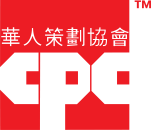32 Community Based Organizations Release Asian American and Pacific Islander (AAPI) Neighborhood Recovery Plan
32 Community Based Organizations Release Asian American and Pacific Islander (AAPI) Neighborhood Recovery Plan
Asian American and Pacific Islander (AAPI) neighborhoods have experienced the economic devastation of COVID-19 since long before the shelter-in-place began. 32 AAPI community based organizations have united to release the following plan to call on New York City and State government officials to prioritize AAPI neighborhoods in recovery efforts. While AAPI neighborhoods were the first to suffer, we will not be the last to recover.
Asian American and Pacific Islander (AAPI) Neighborhood Recovery Plan
We are a group of community based organizations representing the diverse Asian American and Pacific Islander (AAPI) community of New York City and partnering together to develop a plan to ensure the long-term recovery of the individuals, families, small businesses, and institutions of our neighborhoods. The AAPI community is the fastest growing racial group in New York, making up 15% of the City and 10% of the State. While AAPIs have the highest rate of poverty in New York City, less than 1.5% of the City’s human services contract dollars go to our community.
We remind New Yorkers that this is a public health issue, not a racial, ethnic, or immigrant issue. Unfortunately, prior to the Governor’s Executive Order to put New York State on PAUSE in late March, AAPI businesses were already struggling from COVID-19, threatening the livelihoods of workers and business owners since January. Unemployment claims by AAPIs have spiked 6,900%, by far the largest percentage increase experienced by any racial group. AAPI community members continue to report increased incidents of public assaults, harassment, and hate crimes. Despite these challenges, AAPIs are serving on the front lines, risking their own health as doctors, nurses, human services workers, early childhood teachers, grocers, delivery workers, and more.
While these are tough fiscal times, we call on the State and City to make smart investments that not only address the immediate need for economic relief but also revitalize neighborhood economies. We also call on the City and State to find equitable ways to raise revenue as opposed to focusing only on budget cuts. We offer the following recommendations – which should be implemented in combination – to ensure that while AAPI neighborhoods were the first to suffer, we will not be the last to recover.
Workers and Economic Security
- Invest in workforce training and placement, including a mass public employment program and private sector jobs
- Expand public benefits, including but not limited to SNAP, SCRIE, and Medicaid
- Support wage replacement for lost wages
- Enact a relief package targeted specifically at workers left out of federal relief, including but not limited to undocumented, gig workers, cash workers, and independent contractors
- Forgive all debt, including medical, loans, rent, utilities, and back taxes
- Provide direct cash assistance to low-income families, including broadband internet access, remote learning equipment, educational supplies, etc.
- Provide ongoing economic support for older adults, such as food, housing, and health care
- Enhance funding for adult literacy, adult education, bridge programs, and other workforce development services
- Extend H1B visas to support businesses to continue employing graduate level workers
Community Based Organizations
- Include AAPI neighborhood leaders in recovery task forces being formed
- Target funding to address anti-Asian discrimination and harassment
- Ensure full funding of FY20 and FY21 City contracts and City Council discretionary funding, modifying requirements and reimbursing COVID-19 costs
- Provide additional funding for recovery grants to address emerging needs and additional services
- Restore funding for summer programming, including the Summer Youth Employment Program, Beacon Centers, COMPASS, SONYC, Cornerstone, and summer camps
- Support food banks and feeding programs that provide culturally appropriate meals
- Increase funding for community based organizations to purchase equipment, including computers, laptops, and tablets, for clients and students to use
Small Businesses
- Designate AAPI neighborhoods as economic distressed zones that should be targeted for investment and support similar to “opportunity zones”
- Waive sanitation tickets and other fines, penalties, and fees
- Implement mortgage, business, and property tax abatements/tax holidays
- Provide small business grants for reopening and rehiring
- Provide rental support for small businesses
- Invest in a stimulus fund to support M/WBEs and to start-up new businesses
Housing and Neighborhood Affordability
- Extend eviction moratorium and enact good cause eviction
- Institute a rent freeze for individuals and families who cannot afford rent, including NYCHA
- Provide rent supports/subsidies for families impacted by COVID-19 job loss
- Provide small capital grants or low interest loans to small residential landlords for necessary repairs and upkeep to their properties
- Invest in community land trusts in AAPI neighborhoods
- Provide subsidies for commercial tenants that cannot afford rent, especially in mixed-use buildings
Public Health and Health Care
- Provide free COVID-19 testing for all
- Invest in public and neighborhood based outreach about health safety precautions on reopening and prevention of relapse
- Provide health care access for undocumented and low-income individuals and families as well as individuals who have lost jobs
- Invest in comprehensive mental health support to address COVID-19 related trauma and anti-Asian stigma
- Increase reimbursement rates and investments in Federally Qualified Health Centers
- Enhance funding for public hospitals
Digital and Language Access
- Reopen public libraries to provide digital access
- Expand broadband access to digitally isolated communities
- Provide digital devices (smart phones, tablets, and computers) for individuals and families without digital access
- Invest in digital skills training for adults
- Invest in high-quality translated information, including dedicated hotlines for top languages, focusing on all relief and recovery opportunities
- Translate all government and COVID-19 related websites into top languages, using the Google extension for translation if necessary
See coverage in NYN Media.
Organizational Sign-Ons (as of May 28, 2020)
Academy of Medical & Public Health Services
Adhikaar
Apex for Youth
Asian Americans for Equality
Brooklyn Chinese-American Association
Charles B. Wang Community Health Center
Chen Dance Center
Chhaya CDC
Chinatown Manpower Project
Chinatown Rotary Club
Chinatown YMCA
Chinese Methodist Center Corporation
Chinese Progressive Association
Chinese-American Planning Council
Coalition for Asian American Children and Families
Council of People’s Organization
Desis Rising Up and Moving
Immigrant Social Services
Flushing YMCA
Hamilton-Madison House
Henry Street Settlement
Korean American Family Service Center
Korean Community Services of Metropolitan NY
Mekong
MinKwon Center for Community Action
Museum of Chinese in America
Sakhi for South Asian Women
South Asian Council for Social Services
South Asian Youth Action
United East Athletics Association
Womankind
YMCA of Greater NY

